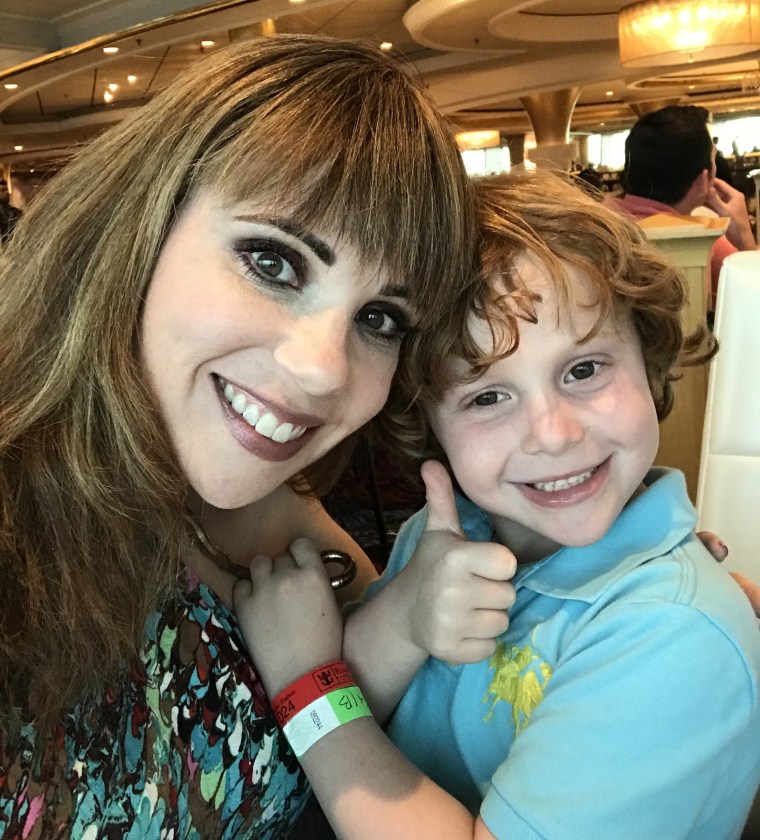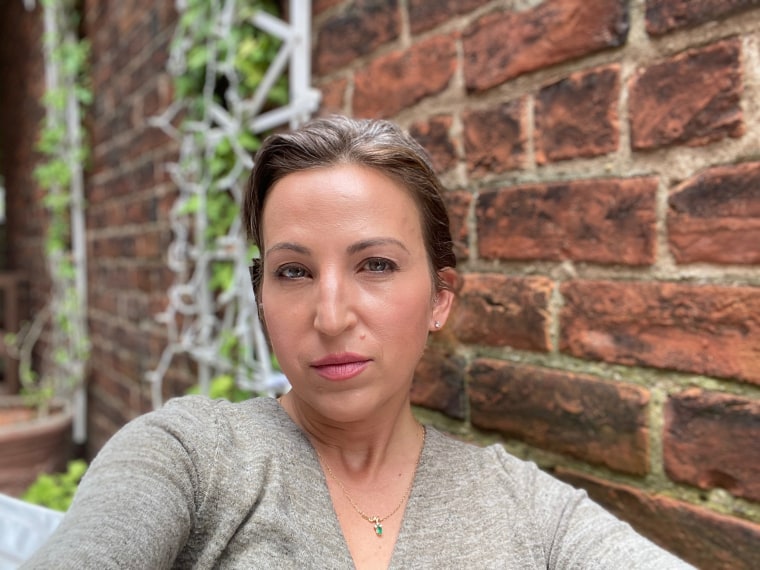In mid-March, Dr. Erica Bial developed a “strange fever” and stayed home as she awaited COVID-19 test results. At first, it felt mild, like the flu. But suddenly she became dramatically ill with “full blown lung failure symptoms.” A public health nurse checking on Bial urged her to go to the hospital, but she refused.
“I thought unless it’s really bad, I’m just going to stay home,” the Boston-area pain specialist told TODAY. “There’s no benefits if I go into the hospital. There’s no medical evidence of anything that they can do for me other than intubate me as a life-saving measure.”

Her father called to wish her a happy 45th birthday and encouraged her to go to the hospital. Again, she declined. But she started thinking about what would happen if she died alone at home and wondered about other doctors with coronavirus. She started searching for colleagues with COVID-19 and found very little.
While the Centers for Disease Control and Prevention has been publishing the number of COVID-19 deaths in health care workers, their number has been much lower than what independent trackers have found. The CDC estimates that 632 health care employees have died from coronavirus, but others believe that number is much greater. Dr. Claire Rezba, an anesthesiologist based in Richmond, Virginia who memorializes COVID-19 deaths in health care workers, has found 1,000 such deaths since she started tracking them at the beginning of the pandemic — when few others were. Last week, Kaiser Health News and The Guardian released data that indicated that 922 health care workers have died from COVID-19.
“It was more of an obligation to keep going to find all these folks,” Rezba told TODAY.
It's tough to track such deaths because not every obituary mentions cause of death or one's career. Rezba has even discovered some fraudulent fundraisers from people claiming a loved one died of the coronavirus, for example. Often death rates don't include a person's profession, making it harder to understand what causes death for them.
When Bial was first diagnosed with the virus, she couldn't help but notice that few doctors seemed to have COVID-19 or were dying of it.
“I was one of the first doctors that I have heard of that had a life-threatening case. I started reading. At that point it’s like ‘Who is keeping track of health care providers? How many deaths do we see?’” Bial explained. “The more I searched, the more I got really worried. If we don’t start keeping track of the health care workers who die they will likely just be lost to history.”
So she started a Facebook page: COVID-19 Physicians Memorial. Each post includes similar information: The doctor’s name, age, date of death, specialty and location plus personal memories and obituaries or links. At first Bial collected the stories herself but as more people started following the page, more wrote their own memorials for loved ones.
Small details about the lives who were lost stick with her. She still thinks of Dr. Frank Gabrin, an emergency room physician in New Jersey thought to be one of the first American doctors to die of the coronavirus.
“There are questions raised as to whether he had adequate PPE. We certainly didn't generally have adequate public health knowledge at that time,” she said. “That's just heartbreaking: You see a young healthy guy who is showing up to work to help people and dies in the process.”
She’s also noticed patterns. Too often it impacts entire families, like the Khanna family who lived in New Jersey. COVID-19 caused the death of Dr. Priya Khanna and her father Dr. Satyender Khanna.
“I find that especially hard because not only did it destroy one person and all of their potential for good,” she said. “But it also destroyed a family.”
While tracking health care workers deaths, Rezba, 40, discovered similarities among the 1,000 lives she’s memorialized on her Twitter feed titled US HCWs Lost to Covid19.
“Husbands, wives, mothers and sons. There are lots and lots of those stories where one person gets infected and they (infect) their family,” she told TODAY. “There are a lot of doctors and nurses and support staff that worked in psychiatric facilities … They seem to be over represented. So I think that's probably an issue with PPE.”

Rezba started tracking health care worker deaths as a way to grapple with the stress she felt as the pandemic began.
“I initially started doing it just as a way of cataloguing my own anxiety and keeping track of those and putting order into what was happening,” she said.
Throughout her career as a resident, Rezba started a tradition to honor patients who had died.
“I would keep track of the patients that had passed away and at the end of the year I would take their names to a church and say a prayer and release the emotional burden I felt about their deaths,” she explained.
To find people, she looks at obituaries and then cross checks it with local news articles or memorials on social media. She feels it is important to remember everyone who works in health care — from the housekeepers to dietary staff to the aides to nurses to doctors to therapists — who die of COVID-19.
“The hospital won’t run if you don’t have someone who is keeping the lights on. You can’t have patients if you don’t have somebody who is making them that food,” Rezba said. “All those players are health care workers and they got neglected.”
While Rezba’s hospital hasn’t faced PPE shortages or a surge of COVID-19 patients, she feels that sharing the stories of health care workers who died of COVID-19 remains essential.
“It’s trying to make sure that loss is seen and not ignored,” she said. “This doesn’t take the loss away but it makes sure it is acknowledged.”
Both doctors hope that their projects encourage people to protect themselves and others from COVID-19.
“Doctors and nurses and housekeepers dying because they are working at a hospital to take care of people who weren’t wearing a mask,” Rezba said. “It would be great if people could take COVID-19 a little more seriously.”
Correction (August 18, 2020, 9:10 a.m.): An earlier version of the story misstated Dr. Erica Bial's medical speciality as neurosurgeon and she is a pain specialist in a department of neurosurgery.